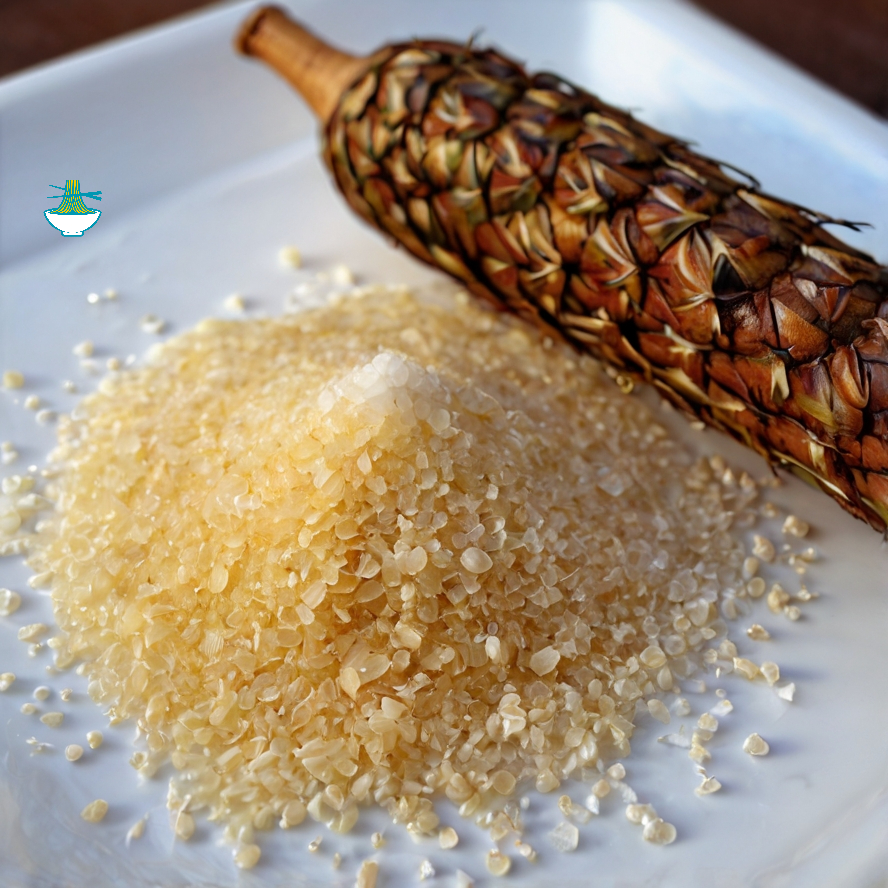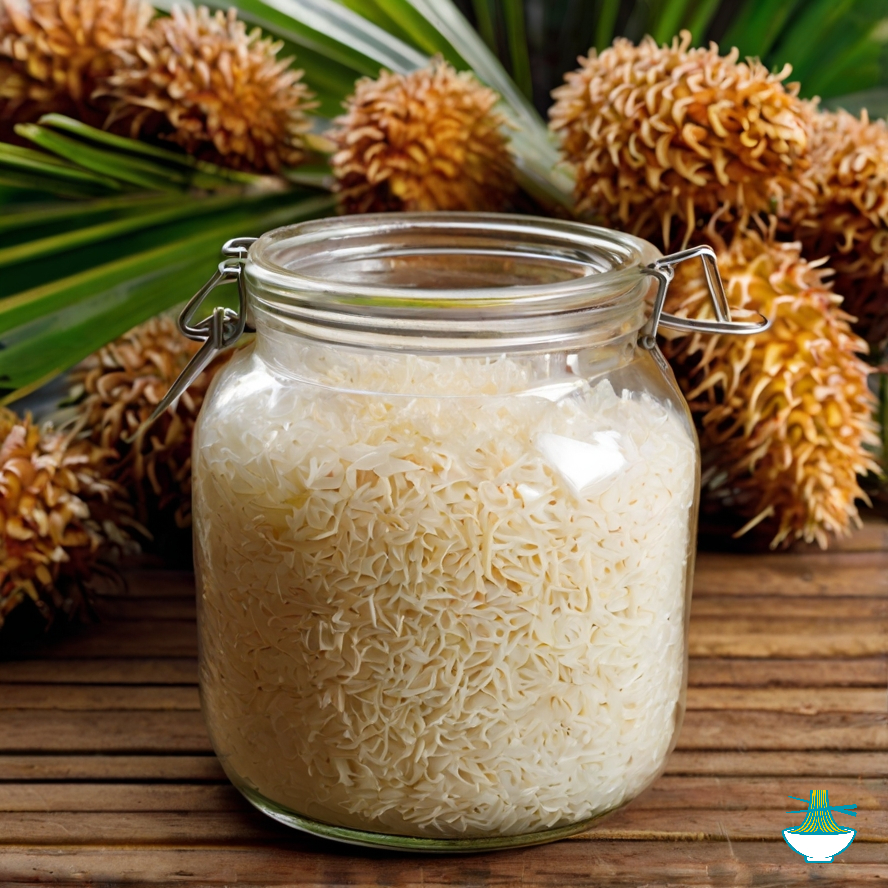Delve into the world of sago, a versatile palm-derived starch , and learn to create delicious pancakes and puddings with easy recipes. This Is How You Cook Sago
lets do straightforward recipes and inventive methods to incorporate this unique ingredient into your dishes.
Ingredients:
- 1 cup sago pearls
- 1 cup coconut milk
- 1/2 cup water
- 2 tablespoons sugar (adjust to taste)
- Pinch of salt
- Butter or oil for frying

Instructions:
Prepare the Sago: Rinse the sago pearls under cold water until the water runs clear. Then, soak the sago pearls in water for about 30 minutes.
Cook the Sago: In a pot, bring 4 cups of water to a boil. Drain the soaked sago pearls and add them to the boiling water. Cook the sago pearls for about 10-15 minutes or until they become translucent, stirring occasionally to prevent sticking. Once cooked, drain the excess water and set aside.
Make the Pancake Batter: In a mixing bowl, combine the cooked sago pearls, coconut milk, water, sugar, and a pinch of salt. Stir until well combined and the sugar is dissolved.
Cook the Pancakes: Heat a non-stick skillet or frying pan over medium heat and add a little butter or oil to grease the pan. Pour a ladleful of the pancake batter onto the hot pan and spread it out slightly into a round shape. Cook the pancake for 2-3 minutes on each side or until golden brown and cooked through. Repeat with the remaining batter.
Serve: Once all the pancakes are cooked, stack them on a plate and serve warm. You can enjoy them plain or with your favorite toppings such as maple syrup, honey, or fresh fruits.
Enjoy your delicious sago pancakes!
Nutritional Values :
Sago Pearls (1 cup, raw):
- Calories: 578 kcal
- Carbohydrates: 143 g
- Protein: 2 g
- Fat: 0 g
- Fiber: 0 g
benefits:
- Source of Energy: Sago pearls are primarily composed of carbohydrates, making them an excellent source of energy.
- Gluten-Free: Sago pearls are naturally gluten-free, making them suitable for individuals with gluten sensitivities or celiac disease.
- Easy to Digest: Sago pearls are gentle on the digestive system, making them suitable for those with digestive issues.
- Provides Iron: Sago pearls contain small amounts of iron, which is essential for red blood cell production and overall energy levels.
Coconut Milk (1 cup):
- Calories: 552 kcal
- Carbohydrates: 13 g
- Protein: 5 g
- Fat: 57 g
- Fiber: 5 g
benefits:
- Healthy Fats: Coconut milk contains medium-chain triglycerides (MCTs), which are healthy fats that can boost heart health and promote weight loss.
- Rich in Vitamins and Minerals: Coconut milk is a good source of several vitamins and minerals, including iron, magnesium, and potassium.
- May Boost Immunity: The lauric acid found in coconut milk has antimicrobial properties that may help boost immunity and fight off infections.
- Dairy-Free Alternative: Coconut milk is a dairy-free alternative to cow's milk, making it suitable for individuals with lactose intolerance or dairy allergies.
Water (1/2 cup):
- Calories: 0 kcal
- Carbohydrates: 0 g
- Protein: 0 g
- Fat: 0 g
- Fiber: 0 g
Sugar (2 tablespoons):
- Calories: 96 kcal
- Carbohydrates: 25 g
- Protein: 0 g
- Fat: 0 g
- Fiber: 0 g
benefits:
- Quick Source of Energy: Sugar provides a quick source of energy for the body, making it ideal for refueling after physical activity.
- Enhances Flavor: Sugar adds sweetness to the pancakes, enhancing their flavor and making them more enjoyable to eat.
- Moderation is Key: While sugar can provide energy and enhance flavor, it's important to consume it in moderation to avoid negative health effects such as weight gain and tooth decay.
Salt (Pinch):
- Calories: 0 kcal
- Carbohydrates: 0 g
- Protein: 0 g
- Fat: 0 g
- Fiber: 0 g
benefits:
- Electrolyte Balance: Salt helps maintain electrolyte balance in the body, which is essential for proper nerve and muscle function.
- Enhances Flavor: Salt enhances the flavor of foods, balancing out sweetness and other flavors to create a more complex taste profile.
- Regulates Fluid Balance: Salt helps regulate fluid balance in the body, ensuring proper hydration levels and preventing dehydration.
Butter or Oil for frying (not included in the breakdown, as the amount can vary):
- Calories and other nutritional values will depend on the type and amount used.
These values are approximate and can vary based on factors such as brand, cooking methods, and specific product variations.


Comments